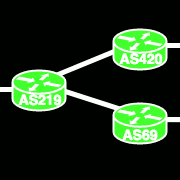|
Amend now since the IRS will send you a letter soon anyway.
|
|
|
|

|
| # ? May 23, 2024 12:48 |
|
Epi Lepi posted:Amend now since the IRS will send you a letter soon anyway. Cool, thanks.
|
|
|
|
I suspect we need to talk to a tax professional, but I thought I'd try asking here. Some years ago my spouse's mother opened a mutual fund account at a Canadian investment bank and listed my spouse as a joint account holder. The investments in the account are currently in the low 5-figures, with all contributions made by spouse's mother and no withdrawals ever. Since the account was opened my spouse became a US resident (for income tax purposes) and we recently realized this account is probably considered a PFIC by the IRS. We're trying to figure out the best way to get rid of this investment, as the IRS reporting requirements for PFICs are very complex. One idea was to simply remove my spouse's name from the account ie it would be held entirely by her mother. Could this be considered a taxable event on which we'd need to pay capital gains tax? More generally failing to sell foreign investments before becoming a US taxpayer is a pain, I don't recommend it.
|
|
|
|
Maybe? If she isn't getting any value for giving up the account then I would be inclined to treat it as a gift. PFICs can be a pain, did she make a QEF election? Probably have an 8621 filing obligation. Separately, have you been filing FBARS for the account? Probably would not need to file 8938, but worth checking if you're over the threshold. Is the value of the joint account over 14,000? Might need to think about a gift tax return. I think a tax professional is probably a good idea, ask your lawyer or money manager for a recommendation if you don't already have somebody.
|
|
|
|
Thanks for the reply. On further reading there doesn't seem to be any way to avoid filing form 8621. We haven't made any kind of election to date and definitely need a tax professional to sort this mess out. We've been on top of FBARS/Form 8938 at least.
|
|
|
|
Thanks to all the big tax brains for helping goons this season
|
|
|
|
Is this a 529 plan loophole to contribute up to the overall contribution limit without consequences? 1. Open 529 with yourself as beneficiary, contribute $350k. You don't have to touch your lifetime gift tax exclusion amount because you are giving the money to yourself, providing a boost to end of life tax avoidance on an estate (granted, this is only really valuable if your estate will be over ~$5.5m in 2017 dollars). 2. Change 529 beneficiary to your child. No tax consequences.
|
|
|
|
I have a dependent-care FSA and it looks like we're going to have about $1500 leftover at the end of this year. But my mom is coming out to watch our son for about 2 weeks this summer while my wife and I are both working (his daycare provider will be closed during this period). Can I pay her as a nanny and get reimbursed out of the FSA account? Signs seem to be pointing to yes, I can pay her for childcare and then be reimbursed by the dependent-care FSA because she's not a dependent, so long as she reports the income. I then zipped over to IRS Publication 926 and tried to figure out if I would need to pay employment taxes in this situation. $1500 is under the $2000 annual threshold for paying SS/Medicare taxes, so no need to pay those. $1500 would exceed the $1000 threshold in a calendar quarter for paying unemployment taxes, but the table says not to count wages paid to my parent, so we should be in the clear, right? Am I wrong about any of this? QuarkJets fucked around with this message at 11:40 on May 2, 2017 |
|
|
|
So I've had a hell of a lovely past two years or so. Short of it: I had a successful business that suddenly crashed and burned so I went from well off to homeless in the span of a year. Maybe just bad with money, maybe just depression, but whatever, I'm dealing with the fallout now. I'm trying to file for bankruptcy, but the bankruptcy attorney strongly suggests I get my taxes in order first. I'm aware I can't usually bankruptcy out of taxes, but he insisted it's something I manage first. I found stuff to help me along with my 2016 filing easy enough. I didn't file in 2015 either, and it's higher than the $60k~ line a lot of programs draw. Since I'm struggling to do this on the cheap(I hired a dude to do it when I was doing well), and I have a poo poo head for numbers, is there a suggestion of software or approaches I should take to this? I don't know if this is the right thread, but I'm sitting in front of a giant stack of papers printed from staples and I'm getting a mild headache trying to figure it out, realizing I need to arrange another trip to print something out, so it's best I should do it from some software to save my time and money on it all. Should I eat the bullet on TurboTax in managing this?
|
|
|
NameHurtBrain posted:So I've had a hell of a lovely past two years or so. Short of it: I had a successful business that suddenly crashed and burned so I went from well off to homeless in the span of a year. Maybe just bad with money, maybe just depression, but whatever, I'm dealing with the fallout now. Can you tell this story sounds good
|
|
|
|
|
I figured I'd wait for tax season to calm down before asking my question, but I've got an interesting one. Over the last few years, I received tax-free tuition benefits from my now ex-employer. The benefits did not appear as income on my W-2 and I did not use the tuition expenses as a deduction or credit on my taxes. However, I switched jobs recently, triggering a claw-back clause for some of the benefits which I am repaying with post-tax money. Can I go back and refile past years and take credit for the tuition expenses? Likely using the Lifetime Learning Credit.
|
|
|
|
I just had a thought about income taxes. If you help get someone on the FBI most wanted list and get the $100,000 reward (or whatever it is), do you have to claim that on your taxes? Or does the government just give you a mulligan on that? Sorry if this has been asked before or if this is the wrong thread, but that just occurred to me and I'm insanely curious about it.
|
|
|
|
Leavemywife posted:I just had a thought about income taxes. If you help get someone on the FBI most wanted list and get the $100,000 reward (or whatever it is), do you have to claim that on your taxes? Or does the government just give you a mulligan on that? It's still gross income that must be reported on what you received.
|
|
|
|
Oh, boo. You think the government would be more grateful to someone who helped catch a dangerous criminal.
|
|
|
|
Leavemywife posted:Oh, boo. You think the government would be more grateful to someone who helped catch a dangerous criminal. You have to pay taxes on whistleblower awards from the IRS. The guy that squealed on UBS got ~$100 million and had $35 million withheld from it by the IRS.
|
|
|
|
About the only freebie awards I'm aware of normally happening are that if you win your state lottery there are several states that treat that income as tax free. It would still count as taxable for federal purposes of course, but it spares you a couple extra percentage of tax for the state at least. Though on the subject at hand I'm pretty sure state income tax would tax whistleblower rewards as well.
|
|
|
|
MadDogMike posted:About the only freebie awards I'm aware of normally happening are that if you win your state lottery there are several states that treat that income as tax free. It would still count as taxable for federal purposes of course, but it spares you a couple extra percentage of tax for the state at least. Though on the subject at hand I'm pretty sure state income tax would tax whistleblower rewards as well. Olympic medals and Nobel prizes are both tax free.
|
|
|
|
My wife and I file jointly, and are over the IRA contribution limit, so there is no tax benefit for contributing to an IRA (other than the Roth bit, if I do backdoor IRA). I got a traditional IRA from an old 401k, that would cost ~10k to convert into a Roth. Then I'd only have Roth IRAs, and be able to do a backdoor IRA. Based on a couple of online calculators, overall I'd be losing some money if I do the conversion, but I think they are calculating the tax benefit of the traditional IRA into it. It's actually hard to say for sure how they are calculating, because they are asking different things, and have different results. Calculators I tried: https://www.calcxml.com/calculators/roth-ira-conversion-calculator http://www.schwab.com/public/schwab/investing/retirement_and_planning/understanding_iras/ira_calculators/roth_ira_conversion http://www.bankrate.com/calculators/retirement/convert-ira-roth-calculator.aspx On one hand, it seems strange to pay the tax on conversion while I'm at a high tax bracket, but on the other hand, it's strange to not try and benefit from the backdoor IRA option. Would appreciate some insights into this.
|
|
|
|
Arkady posted:My wife and I file jointly, and are over the IRA contribution limit, so there is no tax benefit for contributing to an IRA (other than the Roth bit, if I do backdoor IRA). The calculators are likely correct and that you would lose money on that Traditional IRA balance if you convert into a Roth. You come out ahead with Traditional retirement accounts when you defer the taxes at a higher tax rate than when you pay them at a later date (usually in retirement). If you are making more now and in a higher tax bracket than when you first contributed the money into your 401k, then you'll end up with less money doing the conversion relative to if you effectively contributed the same after-tax amount to a Roth in the beginning. Also you take a similar loss on the earnings on that money. Effectively, you decided to not pay tax when you were in a lower tax bracket to pay tax now during the conversion while you are in a higher tax bracket, the opposite of what you want to happen with a Traditional account. Of course, whether or not you'd take a loss in the future if you left it alone is also dependent on what the effective income tax rates will be like in the future. The question is, whether taking this loss now in order to take advantage of the backdoor Roth is worthwhile or not. Obviously if you do the backdoor Roth, you can have $5,500/year (or $11k if both you and your spouse do it) grow tax-free and have the earnings be withdrawn tax-free in retirement. If you don't do a backdoor Roth, you're left with non-deductible Traditional IRA, where your $5.5k/year (or $11k) grows tax-free and earnings are tax at your marginal tax rate, which is currently a terrible idea since income tax rates are significantly higher than capital gains rates; or you have your $5.5k/year (or $11k) in a taxable account where the growth is taxed each year and your earnings are taxed at capital gains rates (currently lower than income tax rates) when you withdraw. You have to decide if the tax drag on money in taxable accounts or a non-deductible IRA would outweigh the guaranteed loss you'll take doing the conversion now (that's assuming you contributed to the 401k while in a lower tax bracket than you are now). You have to also consider how comfortable you are hinging your plan on the idea that capital gains taxes remain low or income tax rates remain in the same ballpark over your retirement time frame. If you predict that in the near future you and your wife will have a lower income year, from taking time off or whatever, you can wait until then to do the conversion to reduce your losses. Ancillary Character fucked around with this message at 01:52 on Jun 17, 2017 |
|
|
|
Question on EE bonds and 529 college savings plans. So my wife and I are about to have a kid. Naturally, we want to start saving for college for said kid. My wife got really lucky and her parents bought her a few EE bonds at various points in the mid 90s, and when she went to college she got a bunch of scholarships so she didn't need to use them. I don't recall if the bonds are in her name, or her parents' names. Total denomination value is $22k, and they're currently worth about $26k. They've matured, but have a few years left of earning interest....most at 4%, which is why we haven't touched them yet. I had a thought: Are we able to roll these in to a 529 savings plan and receive any tax advantages? This would be a massive jump start to a 529, so it's conceivable our kid could cover MAYBE a week of tuition by the time she goes to college. Honestly we'll probably do this anyway, but it'd be really nice if there's a way we can avoid or reduce taxes on these since that will add up to a couple grand.
|
|
|
|
DaveSauce posted:I had a thought: Are we able to roll these in to a 529 savings plan and receive any tax advantages? This would be a massive jump start to a 529, so it's conceivable our kid could cover MAYBE a week of tuition by the time she goes to college. Depends on your state if there are additional benefits, but all 529 plans grow tax-free.
|
|
|
|
I'm a US citizen but I don't live in the US and neither does most of family. My mail gets sent to my sister's apartment, but I've had a few issues with missed notices from the IRS and other important documents. Googling around I see there's a few services that give you a PO Box and then scan anything you get and send it via email. Is this a monumentally bad idea because of identity fraud or are these business legit?
|
|
|
|
How long should I keep my US tax returns for? I'm doing some spring cleaning and came to realize that I've got many years worth of returns filed away at home. I have no reason to believe that I'd be audited outside of random chance, should I just keep the last 5 years? Last year? Throw it all out once the payment or refund checks clear?
|
|
|
|
Forever. You might need them in a dispute about your Social Security benefits.
|
|
|
|
The rule of thumb is 7 years for Schedule C types. But unless they're taking up a ton of space, there's nothing to really gain for tossing them out if you're an individual.
|
|
|
|
Volmarias posted:How long should I keep my US tax returns for? The rule is like 7 years, but the IRS tends to only go back three, but they could go back infinity years if they think there could be fraud so  You could always scan them and hope you never lose the hard drive/flash drive you save them to! (You will)
|
|
|
|
My wife found a 1099 for a $16 state tax refund that didn't make it into my return this year. Is this something that I have to worry about? I'd rather not file an amended state and federal paper return for like $8 or something. If I get flagged, how much is this going to cost and would it lead to a larger scale audit which would be a much bigger pain in the rear end? Thanks.
|
|
|
|
Epi Lepi posted:The rule is like 7 years, but the IRS tends to only go back three, but they could go back infinity years if they think there could be fraud so I usually advise 5-7 years; about the only time I've seen the IRS go further back than that is for people who basically refused to file tax returns longer ago and owe money on their recent returns (so the IRS wants the info on the missing years to make sure even more isn't owed). To be honest I'm not entirely sure how good the IRS's own records are past ten years, statute of limitations kicks in on collecting back tax owed by then anyway if they never did anything before 10 years. potatoducks posted:My wife found a 1099 for a $16 state tax refund that didn't make it into my return this year. Is this something that I have to worry about? I'd rather not file an amended state and federal paper return for like $8 or something. If I get flagged, how much is this going to cost and would it lead to a larger scale audit which would be a much bigger pain in the rear end? Thanks. Big question; did you file itemized deductions/schedule A on your regular taxes last year? If not, then state refunds don't matter in the slightest. Even if you do itemize, the change is gonna be pretty low. I doubt that you would get some sort of super audit in any event, if they did that for every person that missed a single form they'd be swarmed under with work. Worst case they probably send you a letter saying "we found this much difference, here's what you owe" and you send them the amount on the letter. Which will include penalty and interest, but for something that small it's downright miniscule. MadDogMike fucked around with this message at 18:32 on Jun 25, 2017 |
|
|
|
Epi Lepi posted:You could always scan them and hope you never lose the hard drive/flash drive you save them to! (You will) Google Drive I went all-digital last year - it's awesome having your life in your pocket
|
|
|
|
MadDogMike posted:To be honest I'm not entirely sure how good the IRS's own records are past ten years, statute of limitations kicks in on collecting back tax owed by then anyway if they never did anything before 10 years. Depending on what you need, the IRS is godawful. Best example is nondeductible IRA, which haunt you for eternity (or until all of your IRAs are drained). You fill out Form 8606 like a good taxpayer and send it in with your return, and then forget the next year since you didn't contribute/withdraw money from an IRA. Ten years go by, and then you pull funds out for whatever reason but lost your old return, because everyone says to toss it out after seven years. So, you call the IRS for a record of the 8606 filed, and then the bad news comes in - the IRS doesn't keep that form. AT ALL. If you've switched brokers, or lost those records, you're hosed. But where, anywhere, does the IRS warn you about this? It doesn't. It's all trial and error. I've had two clients run into this. Once client kept the investment records from the late 90s and we could back into the answer, but that took hours of extra time. The other one basically said "screw it" and paid tax on the full amount, since they figured that was cheaper than trying to pay me to figure it out.
|
|
|
|
AbbiTheDog posted:Depending on what you need, the IRS is godawful. Well Uh Guess I am keeping all the hard forms and digital backups for my nondeductible IRA > Roth IRA conversions. Forever.
|
|
|
|
Is it necessary to have the 8606 once you've converted it to a Roth? It sounds like it's only for traditional ones that didn't get converted.
|
|
|
|
ohgodwhat posted:Is it necessary to have the 8606 once you've converted it to a Roth? It sounds like it's only for traditional ones that didn't get converted. It's necessary to calculate any tax and penalty on an early Roth distribution.
|
|
|
|
Don't optimize your tax form retention policy. You're talking about ~40 8606 forms over your working lifetime. Just keep all the poo poo.
|
|
|
|
Tyro posted:Well Yeah, when I made that phone call to the IRS and they told me about that is was a bit eye opening. We now tell clients to save all of the 8606/nondeductible IRA info in their "permanent" tax records.
|
|
|
|
Thanks for the heads up on that, I really appreciate it. Quick question that I suspect I already know the answer to but am curious: If a US citizen is a physical presence resident of a foreign country, and teleworking for a US based company, doing work that is in no way related to their country of residence - is that earned income eligible for the foreign earned income exclusion? Like if someone works remotely in State A for a company located and operating in State B, then just moves from State A to another country and keeps the same job, is that magically now foreign earned income based on their physical location?
|
|
|
|
Quick question: I am an IT consultant with a day job and various private clientele. Typically for my side work I use a 1099 and claim my income/pay taxes on whatever contract work I've done throughout the year. I am now in the process of potentially working with another client that cannot do 1099 due to being a publicly traded company (I think?). At any rate they would have to pay my on a W-2. Now I think the best thing for me to do would be file for an LLC Sole Proprietorship on legalzoom or a similar service. Does this sound correct?
|
|
|
|
I'm a non-resident US citizen that resides in country A. Basically I only pay Federal taxes every year because I do not work inside any US state. This year I have the chance to provide services to a non-US company that is based in country B. The company holds US properties. My work will be related to those US properties (basically assisting on the paperwork for some property sales) but I would be doing everything remotely from another country where I'm a tax resident. All properties are in Florida. Would I have to pay state taxes for that income?
|
|
|
|
Tyro posted:Thanks for the heads up on that, I really appreciate it. Not an accountant or a lawyer but this can get messy fast 1) While uncle sam doesnt know or care, the us citizen in this case is reporting their income and paying taxes in their country of residence and working on valid citizenship/a visa in that country, right? ;-) 2) Be careful with state taxes, just because you leave the US and start working abroad doesn't mean your state of last residence's tax obligations go away. This can get VERY messy If you're a 100% remote employee and trying to work abroad without both the company paying you knowing you're abroad or the destination country you're in knowing you're working there and paying appropriate taxes, you're setting yourself up for some serious potential buttfucking when it all comes crashing down Don't try to do this on your own casually without immigration lawyers and accountants involved in my opinion. Collecting pay in a US bank account with your company thinking you're in the US and performing your work in another country without a right to work in said country is both potentially a compliance issue for your employer, and tax evasion on your part for not paying taxes in the country you're a resident of. Asymmetric POSTer fucked around with this message at 21:23 on Jun 30, 2017 |
|
|
|

|
| # ? May 23, 2024 12:48 |
|
mishaq posted:Not an accountant or a lawyer but this can get messy fast When I was in the US Army I got nailed for this by Virginia even when I was stationed overseas. It is the number 1 reason careerists (I wasn't) buy houses, etc. in Texas once they get stationed there (if you are in long enough, chances are you'll be at Ft. Hood or Houston for some of it) to claim residence.
|
|
|





























